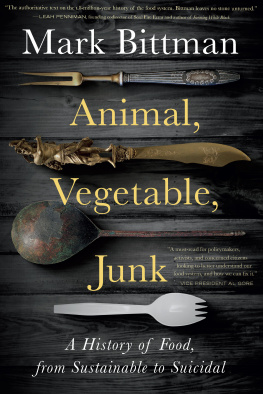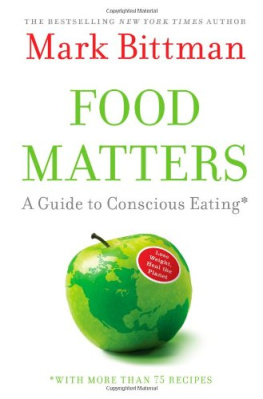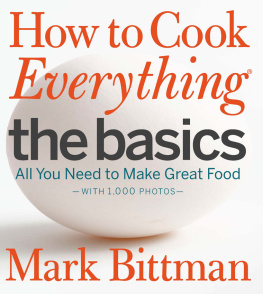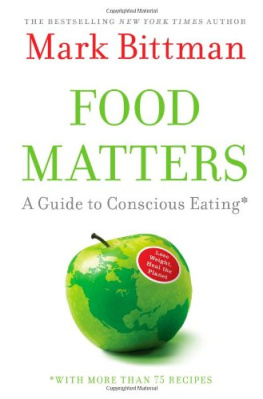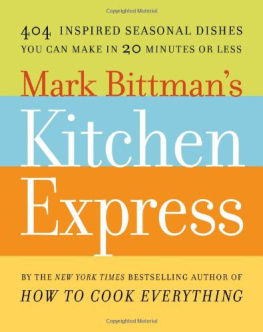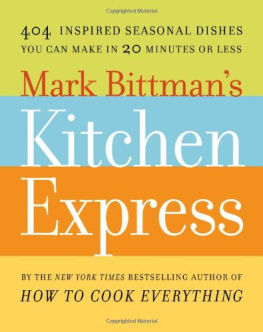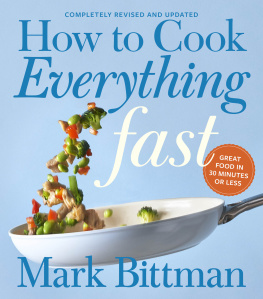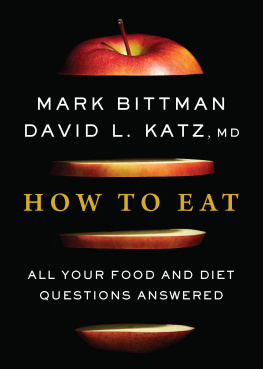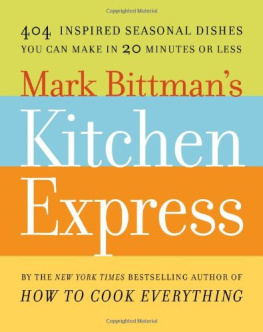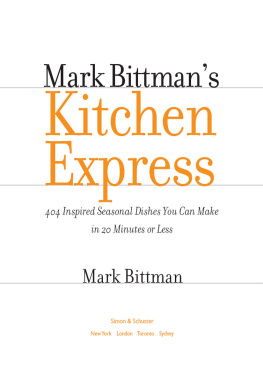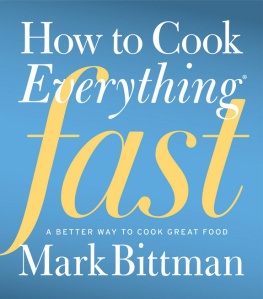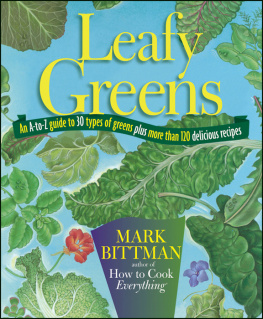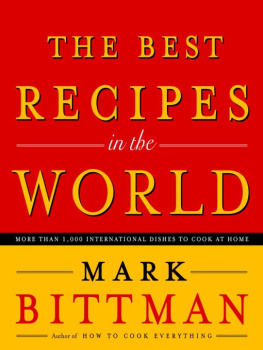Mark Bittman - Animal, Vegetable, Junk
Here you can read online Mark Bittman - Animal, Vegetable, Junk full text of the book (entire story) in english for free. Download pdf and epub, get meaning, cover and reviews about this ebook. year: 2020, publisher: HMH Books, genre: Politics. Description of the work, (preface) as well as reviews are available. Best literature library LitArk.com created for fans of good reading and offers a wide selection of genres:
Romance novel
Science fiction
Adventure
Detective
Science
History
Home and family
Prose
Art
Politics
Computer
Non-fiction
Religion
Business
Children
Humor
Choose a favorite category and find really read worthwhile books. Enjoy immersion in the world of imagination, feel the emotions of the characters or learn something new for yourself, make an fascinating discovery.
- Book:Animal, Vegetable, Junk
- Author:
- Publisher:HMH Books
- Genre:
- Year:2020
- Rating:5 / 5
- Favourites:Add to favourites
- Your mark:
- 100
- 1
- 2
- 3
- 4
- 5
Animal, Vegetable, Junk: summary, description and annotation
We offer to read an annotation, description, summary or preface (depends on what the author of the book "Animal, Vegetable, Junk" wrote himself). If you haven't found the necessary information about the book — write in the comments, we will try to find it.
Animal, Vegetable, Junk — read online for free the complete book (whole text) full work
Below is the text of the book, divided by pages. System saving the place of the last page read, allows you to conveniently read the book "Animal, Vegetable, Junk" online for free, without having to search again every time where you left off. Put a bookmark, and you can go to the page where you finished reading at any time.
Font size:
Interval:
Bookmark:
Copyright 2021 by Mark Bittman
All rights reserved
For information about permission to reproduce selections from this book, write to or to Permissions, Houghton Mifflin Harcourt Publishing Company, 3 Park Avenue, 19th Floor, New York, New York 10016.
hmhbooks.com
Library of Congress Cataloging-in-Publication Data
Names: Bittman, Mark, author.
Title: Animal, vegetable, junk / Mark Bittman.
Description: Boston : Houghton Mifflin Harcourt, 2021. | Includes bibliographical references and index.
Identifiers: LCCN 2020034051 (print) | LCCN 2020034052 (ebook) | ISBN 9781328974624 (hardcover) | ISBN 9780358392422 | ISBN 9780358394839 | ISBN 9781328971623 (ebook)
Subjects: LCSH: Food habitsUnited StatesHistory. | Food habitsEnvironmental aspectsUnited States. | AgricultureSocial aspectsUnited States. | AgricultureEnvironmental aspectsUnited States.
Classification: LCC GT2853.U5 B58 2021 (print) | LCC GT2853.U5 (ebook) | DDC 394.1/2dc23
LC record available at https://lccn.loc.gov/2020034051
LC ebook record available at https://lccn.loc.gov/2020034052
Cover design by Mark Robinson
Utensil images: Maxiphoto/iStock/Getty (top); DEA/A. Dagli Orti/De Agostini via Getty Images (middle); busypix/iStock/Getty (bottom)
Background image: Titima Ongkantong/Shutterstock
Author photograph Burcu Avsar
v2.0121
For Kathleen
Our economic system and our planetary system are now at war.... Only one of these sets of rules can be changed, and its not the laws of nature.
NAOMI KLEIN
When we try to pick out anything by itself, we find it hitched to everything else in the universe.
JOHN MUIR
This is a book about mans war against nature, and because man is part of nature it is also inevitably a book about mans war against himself.
RACHEL CARSON
Land is the basis of all independence. Land is the basis of freedom, justice, and equality.
MALCOLM X
FOOD AFFECTS EVERYTHING. Not only is it crucial to existence, but its quality can change us for better or worse. Yet over the course of modern history the nature of growing and producing our most important substance has been changed in ways that made increasing numbers of humans begin to eat manufactured creations that had little in common with the food from which they were made, while the land used for their production has been degraded and humans ruthlessly exploited. These were mistakes, and there wereand still aremany others.
Long before there were Homo sapiens, food drove evolutionary changes. Until about 540 million years ago, animals blindly (literally) grazed on vegetal matter or dead animals, often without even moving. (Think of the way an oyster filters nutrients out of water that passes around and through it.) That era saw the first appearance of animals wed recognize today, like worms, fish, and crabs. After the development of limbs, fins, and eyes, animals began to interact with one another.
Most notably, they improved their abilities to kill and eat one another, and to defend themselves against getting killed and eaten. From that time until recently, getting food or avoiding being food became every animals number-one job.
Not everyone realizes it, but plants create biomass, and animals, for the most part, consume it. Plants turn sunlight, air, water, and soil into stuff, including food. Dependent and even parasitic, animals do none of that: We can create biomass only by helping and encouragingor at least not hindering or destroyingthe work of plants. Yet, pathetic as we are in that regard, weve become the most powerful creatures in history. We could destroy much of the world.
That ability began to develop around ten thousand years ago, when humans started to intentionally grow plants and raise animals. With the development of agriculturea mashup of two Latin words meaning field and growingcame the birth of societies and the invention of knives, axes, canoes, wheels, and more, each with profound effects on history. Humans built entire industriesentire civilizationsaround their ability to bend the land and its fruits to their will. Land became the foundation of wealth.
But agriculture has had a dark side: Its sparked disputes over landownership, water use, and the extraction of resources. Its driven exploitation and injustice, slavery and war. Its even, paradoxically enough, created disease and famine.
Simply put: Agriculture has, over the course of human history, gotten away with murder. With each passing century, its gotten better at it, until it became a justification for imperialism and genocide.
Until recently, almost all humans were engaged in growing food. Its likely that you, dear reader, have no daily relationship to soilthat you take food for granted. It just shows up in your store or restaurant, often ready to eat. Few of us actually witness the steps required to produce, process, move, and prepare that food.
These events require land, water, energy, a variety of resources, and lots of labor. The net result, were told, is feeding the seven billion. Yet the stranglehold Big Agriculture maintains over food production in much of the world fails to provide even the minimal necessary calories for many, and its most recent products sicken billions of people.
A dictionary definition of food reads something like a substance that provides nourishment. And until a century ago, we had two types of food: plants and animals. But as agriculture and food processing became industries, they developed a third type of food, more akin to poisona substance that is capable of causing illness or death. These engineered edible substances, barely recognizable as products of the earth, are commonly called junk.
Junk has hijacked our diets and created a public health crisis that diminishes the lives of perhaps half of all humans. And junk is more than a dietary issue: The industrialized agriculture that has spawned junkan agriculture that, along with its related industries, concentrates on maximizing the yield of the most profitable cropshas done more damage to the earth than strip mining, urbanization, even fossil fuel extraction. Yet it remains not only underregulated but subsidized by the governments of most countries.
For decades, Americans believed that we had the worlds healthiest and safest diet. We didnt worry about its effects on our health, on the environment, on resources, or on the lives of the animals or even the workers it relies upon. Nor did we worry about its ability to endurethat is, its sustainability. We have been encouraged, even forced, to remain ignorant of both the costs of industrial agriculture and the non-environment-wrecking, healthier alternatives.
Yet if terrorists stole or poisoned a large share of our land, water, and other natural resources, underfed as much as a quarter of the population and seeded disease among half, threatened our ability to feed ourselves in the future, deceived, lied to, and poisoned our children, tortured our animals, and ruthlessly exploited many of our citizenswed consider that a threat to national security and respond accordingly.
Contemporary agriculture, food production, and marketing have done all of that, with government support and without penalty.
That must end. To meet the human and environmental crises head-on, we must ask ourselves: What would a just food system look like?
I believe we can answer that question (and I try to), and although getting to that place wont be easy, its crucialbecause nothing is more important than food. You cant talk about reforming a toxic diet without talking about reforming the land and labor laws that determine that diet. You cant talk about agriculture without talking about the environment, about clean sources of energy, and about the water supply. You cant talk about animal welfare without talking about the welfare of food workers, and you cant talk about food workers without talking about income inequality, racism, and immigration.
Font size:
Interval:
Bookmark:
Similar books «Animal, Vegetable, Junk»
Look at similar books to Animal, Vegetable, Junk. We have selected literature similar in name and meaning in the hope of providing readers with more options to find new, interesting, not yet read works.
Discussion, reviews of the book Animal, Vegetable, Junk and just readers' own opinions. Leave your comments, write what you think about the work, its meaning or the main characters. Specify what exactly you liked and what you didn't like, and why you think so.

